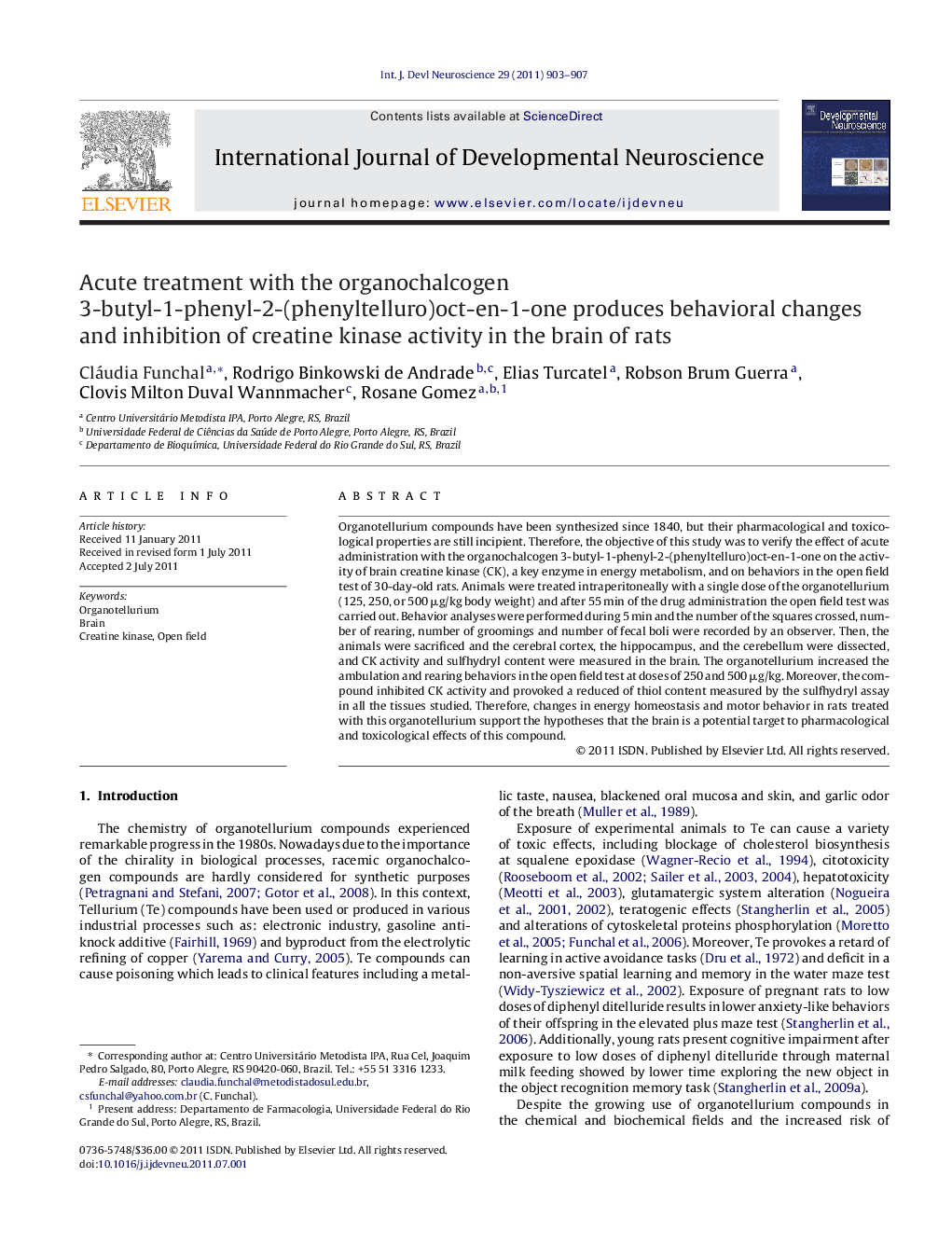| Article ID | Journal | Published Year | Pages | File Type |
|---|---|---|---|---|
| 2786324 | International Journal of Developmental Neuroscience | 2011 | 5 Pages |
Organotellurium compounds have been synthesized since 1840, but their pharmacological and toxicological properties are still incipient. Therefore, the objective of this study was to verify the effect of acute administration with the organochalcogen 3-butyl-1-phenyl-2-(phenyltelluro)oct-en-1-one on the activity of brain creatine kinase (CK), a key enzyme in energy metabolism, and on behaviors in the open field test of 30-day-old rats. Animals were treated intraperitoneally with a single dose of the organotellurium (125, 250, or 500 μg/kg body weight) and after 55 min of the drug administration the open field test was carried out. Behavior analyses were performed during 5 min and the number of the squares crossed, number of rearing, number of groomings and number of fecal boli were recorded by an observer. Then, the animals were sacrificed and the cerebral cortex, the hippocampus, and the cerebellum were dissected, and CK activity and sulfhydryl content were measured in the brain. The organotellurium increased the ambulation and rearing behaviors in the open field test at doses of 250 and 500 μg/kg. Moreover, the compound inhibited CK activity and provoked a reduced of thiol content measured by the sulfhydryl assay in all the tissues studied. Therefore, changes in energy homeostasis and motor behavior in rats treated with this organotellurium support the hypotheses that the brain is a potential target to pharmacological and toxicological effects of this compound.
► Acute treatment with the organotellurium provokes an increase in the ambulation and rearing behaviors in the open field. ► The organochalcogen induces energy impairment in the brain of rats. ► The organotellurium is able to inhibit creatine kinase activity and to reduce sulfhydryl content in cerebral cortex, hippocampus and cerebellum of rats.
